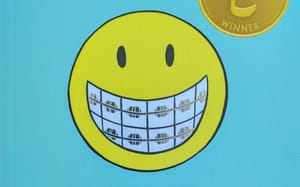Reading and The Uncommon Reader
The much-discussed, and somewhat contested, NEA report on reading came out at around the same time as The Uncommon Reader, a fictional account by Alan Bennett of the late discovery of reading by the Queen (of England). The conjunction was discussed in the New York Times:
PERHAPS the most fantastical story of the year was not “Harry Potter and the Deathly Hallows,” but “The Uncommon Reader,” a novella by Alan Bennett that imagines the queen of England suddenly becoming a voracious reader late in life. // A Good Mystery: Why We Read – New York Times
‘Fantastical’, the author, Motoko Rich, suggests because: ‘At a time when books appear to be waging a Sisyphean battle against the forces of MySpace, YouTube and “American Idol,” the notion that someone could move so quickly from literary indifference to devouring passion seems, sadly, far-fetched.’
“The Uncommon Reader” posits the theory that the right book at the right time can ignite a lifelong habit. (For the fictional queen, it’s Nancy Mitford’s “Pursuit of Love.”) This is a romantic ideal that persists among many a bibliophile. // A Good Mystery: Why We Read – New York Times
This same tone is evident in the Financial Times review:
His storytelling, though, is rather less magical. By taking us into the workings of minds other than our own, Bennett argues, reading makes better people of us. This is a quaintly old-fashioned view of literature that one might find comforting had history not so comprehensively rubbished it. // FT.com / Books / Fiction – The Uncommon Reader
A different reading
I read the book when it came out and was a little puzzled by some of the emphasis of these and other reviewers. While the book does indeed celebrate the power of reading to transform the Queen’s life, its main message for me was somewhat different. It is a discussion of how little of this ‘literary’ reading there actually is. So, I reread it over the holiday. It is a quick read …
While the book does indeed celebrate the power of reading to transform the Queen’s life, its main message for me was somewhat different. It is a discussion of how little of this ‘literary’ reading there actually is.
The Queen discovers a City of Westminster mobile library outside the kitchen doors of the palace and borrows a book. This triggers a sustained late-life reading wave. She reads quickly, passionately and in ever-increasing circles (her initial choices are guided by Hutchings, who worked in the kitchen and was in the mobile library when she came across it; he suggests books by gay authors). She soon comes to regret the many wasted years where she did not read; she is mortified when she thinks of all the authors she has met without any insight into what they wrote. And yes, the author connects her progressively more discriminating reading tastes with a general refinement of sensibilities. She becomes concerned, for example, with the bad impression she makes on a maid, something that before she would not have noticed. She wonders why, and the narrative voice suggests that she is yet to connect this “access of consideration” with her reading. She talks of books opening up “other lives” and “igniting the imagination”. She rebukes her Private Secretary who wondered had she not been briefed about the authors she met: “Briefing closes down a subject, reading opens it up”.
But what comes across more strongly than this personal refinement is that her new interest does not extend the range of her personal connections with others. She does not find the world hospitable to readers. Indeed, her reading becomes a barrier to engagement, not a bridge built on new shared reading interests. Sir Kevin is concerned that while not quite “elitist”, reading tends to “exclude” and sends out a bad message. Not many people actually read, he suggests. He further suggests that reading is selfish, a “withdrawal”, that it makes “oneself less available”, and is “solipsistic”. She makes people she meets uncomfortable as she asks about what they are reading; if they cannot come up with any current reading materials, she offers then whatever she has in her bag. Her staff worry about this, as “most people, poor dears, aren’t reading anything”. Those that receive her books in this way, they reckon, sell them on eBay. Her equerries come up with some suggestions of titles for those that otherwise might be at a loss when the queen asks about their reading. “Though this meant that the Queen came away with a disproportionate notion of the popularity of Andy McNab and the near universal affection for Joanna Trollope, no matter; at least embarrassment had been avoided.”
Her family approves of books, so long as they don’t have to read them; they wish she did not quiz them about their reading habits or check that they had read books she had given them. As her behavior continues to change and she devotes more time to reading, she becomes somewhat perfunctory in the performance of her duties. Her staff fear the worst: “the dawn of sensibility was mistaken for the onset of senility”.
This is all conveyed in a gently satirical tone. Although there are some broad swipes at the business language of Sir Kevin, and at East Anglia, New Zealand and Canada! The treatment gets sharper when other figures of authority are involved. In the opening pages, she discombobulates the president of France by wanting to talk about Genet. He is unbriefed and so unprepared. She rings the Archbishop of Canterbury wanting to talk about reading in church services; after their conversation he returns to watching Strictly Come Dancing on the TV. There are some very barbed swipes at the Prime Minister (not named, but presumably Tony Blair). He did not “wholly believe in the past or in any lessons that might be learned from it”. When the queen begins giving the Prime Minister books, an unequivocal message comes back through ‘channels’: “yes. Lending him books to read. That’s out of order”. Towards the end of the book, the Queen begins to think about writing a book herself, something more ‘radical’ and ‘challenging’ she tells the Prime Minister. He is not worried, as ‘radical’ and ‘challenging’ are both words that trip off his tongue: they have been bleached of any meaning for him.
So, she experiences an awakening through reading, and wants to share her discoveries and pleasures with those around her. However, she runs into incomprehension, opposition and distaste.
The book’s title plays on The Common Reader, and on the fact that the Queen is not a ‘commoner’ like her subjects. However, as I read the book, I increasingly heard something else. The Queen is also ‘uncommon’ because she is a reader, unlike all the others she comes in contact with. Reading turns out not to be common, in the sense in which reading is being used here; there are no common readers. Rather than being a celebration of the redemptive power of literature, this is an elegy for its demise, or at least for the demise of a particular type of reading as a common pursuit. It may be more appropriate to point to what The Uncommon Reader shares with the NEA report, than to offer it as a contrast.
Rather than being a celebration of the redemptive power of literature, this is an elegy for its demise, or at least for the demise of a particular type of reading as a common pursuit.
Picture: I took the feature picture in Trafalger Square, in the City of Westminster, London.
Note: Cosmetic stylistic amendments made on 18 April 2021, including added headings and picture. Formatting tidied up 25 February 2023.




